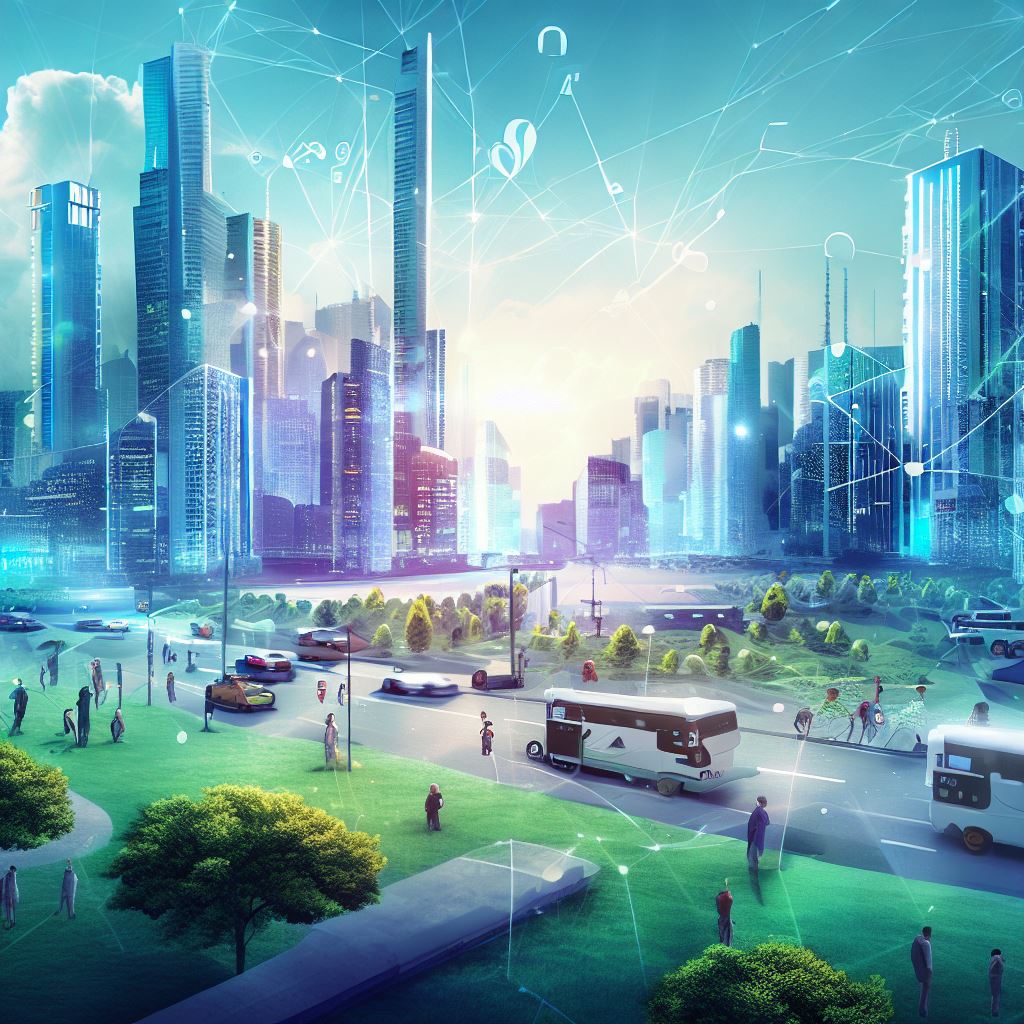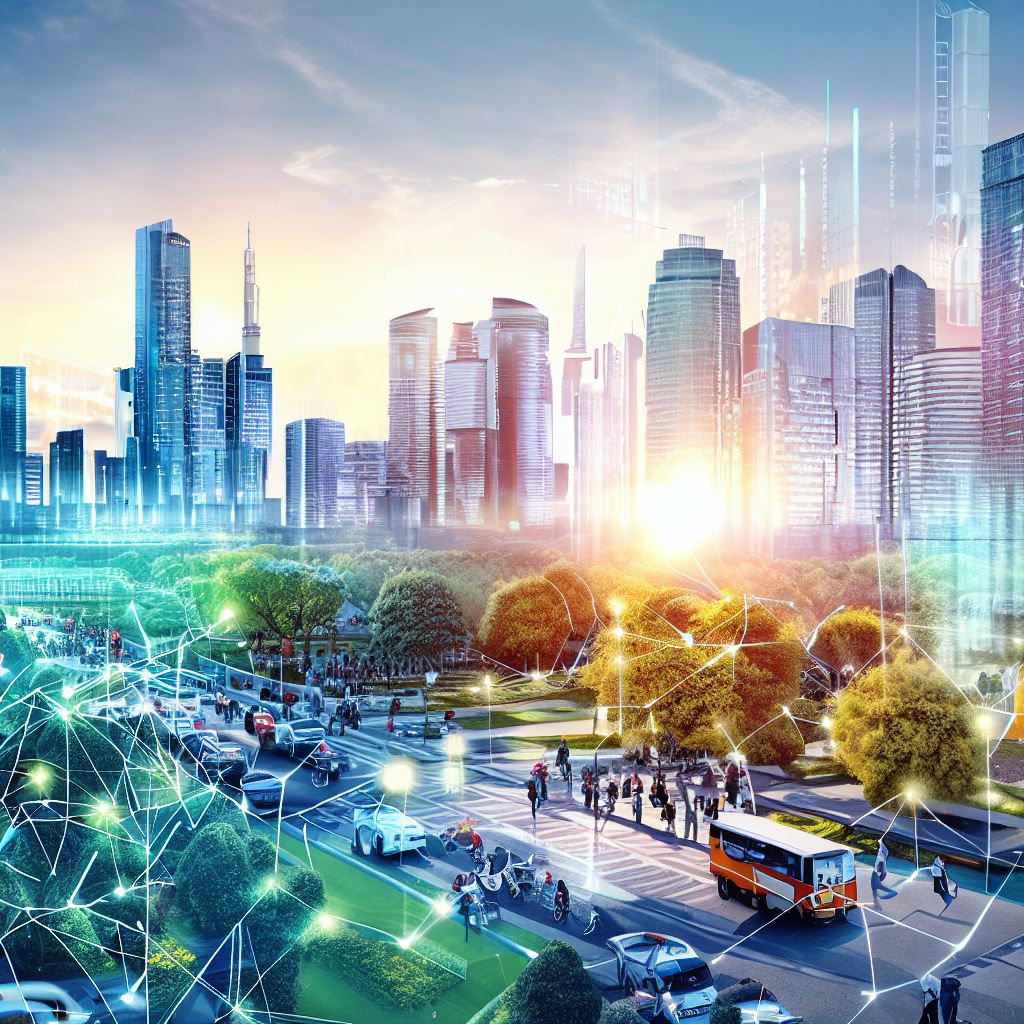
Smart Cities: The Role of Technology in Urban Development
Introduction
In an era marked by rapid urbanization and technological innovation, the concept of "smart cities" is pivotal for sustainable urban development. Smart cities utilize advanced technologies, including Internet of Things (IoT) and Artificial Intelligence (AI), to enhance quality of life, operational efficiency, and overall urban sustainability. This article provides a meticulous examination of the evolution, current manifestations, and the foreseeable future of smart cities, aiming to provide valuable insights to urban planners, city administrators, technology experts, environmentalists, and the general populace interested in urban futures.
Defining Smart Cities
A "smart city" is a designation given to a city that integrates both information and communication technologies (ICT) to enhance the quality and performance of urban services, reduce costs and resource consumption, and connect citizens. This concept dovetails intelligent urbanism and city digitization, focusing on evolving urban environments to be more responsive to citizens’ needs, optimizing urban functions, and promoting sustainable growth.
Historical Context of Urban Technology
Urban technology has a longstanding history. It started with the introduction of street lights and has since evolved to encompass a plethora of technologies aimed at improving urban living. From rudimentary advancements in the early industrial era to the contemporary proliferation of digital technologies, urban tech innovations have been pivotal in shaping the trajectory of cities, optimizing urban planning and offering revolutionary solutions to traditional urban problems.
Current Manifestations of Smart City Technologies
Several cities globally have embraced technology, becoming epitomes of intelligent urbanism. A few noteworthy examples include:
- Singapore: Recognized for its ambitious smart city initiatives, Singapore leverages technology to optimize traffic, reduce energy consumption, and enhance public services through real-time data analysis and IoT applications.
- Barcelona: Barcelona employs IoT to manage water, lighting, and waste efficiently, illustrating the city’s commitment to sustainability and the optimal use of resources.
- Copenhagen: This city utilizes digital technology to achieve its goal of becoming the world’s first carbon-neutral capital by focusing on renewable energy and promoting eco-friendly practices.
Benefits of Technology in Urban Planning
Enhanced Efficiency and Quality of Life
Integrating technology in urban spaces yields numerous benefits, encompassing elevated operational efficiency and improved quality of life. City digitization facilitates streamlined municipal operations and public services, elevating urban living standards.
Optimized Resource Management
Smart cities enable optimal resource utilization, fostering sustainable urban development through technology. The automation and intelligence imbued in urban tech innovations allow for meticulous resource allocation, minimizing wastage and promoting environmental conservation.
Improved Public Services
Advanced technologies facilitate the enhancement of public services like healthcare, education, and security, providing personalized and prompt responses to the citizens’ needs. For instance, digital towns employ predictive analytics to allocate law enforcement resources effectively, ensuring public safety.
Inclusive and Equitable Urban Environments
The advent of technology in urban planning heralds the realization of more inclusive and equitable urban environments. Digital infrastructures accommodate diverse populations, ensuring every citizen can access city services and participate in urban life.

Challenges of Integrating Technology in Cities
However, transitioning to smart cities is not without its challenges. Some of the pertinent challenges include:
- Data Security and Privacy Concerns: The extensive use of ICT in urban tech innovation often raises issues related to data security and privacy, with citizens concerned about how their data is being used and protected.
- High Initial Costs: The initial investment required for the integration of advanced technologies is often high, posing a barrier to many cities with constrained budgets.
- Technological Disparities: The unequal access to technology can exacerbate existing inequalities within cities, where underserved communities may not benefit from the advancements in urban technology.
Sustainability and Environmental Impact of Smart Cities
Smart cities underscore the essence of sustainable urban development through technology, striving to minimize the environmental footprint. The incorporation of green technologies and renewable energy sources in digital towns is crucial in combating climate change and fostering environmental conservation.
Case Study: Amsterdam Smart City Initiative
Amsterdam stands out as a city that has seamlessly integrated sustainability and technology. The Amsterdam Smart City Initiative focuses on collaborative projects aimed at sustainability, with a keen emphasis on energy conservation, mobility solutions, and digital innovation. The initiative collaborates with local residents, businesses, and authorities to co-create projects that promote sustainability and innovation, demonstrating how smart cities can be hubs for sustainable urban development.
Role of IoT, AI, and Other Emerging Technologies in Urban Development
The role of emerging technologies, notably IoT and AI, is indispensable in shaping smart cities. These technologies facilitate the creation of a connected, efficient, and responsive urban environment.
Internet of Things (IoT)
IoT links physical and digital worlds, enhancing the collection, analysis, and utilization of data. It plays a pivotal role in smart city infrastructure, enabling real-time monitoring and management of city services and utilities, thereby promoting efficiency and sustainability.
Artificial Intelligence (AI)
AI empowers smart cities by providing intelligent solutions that analyze data to make informed decisions. It is integral in automating various city services, reducing human error, and optimizing resource allocation, reflecting the future of smart city innovations.
Insights on Future Smart City Innovations
The future of smart city innovations is promising, marked by continuous advancements in technology. The amalgamation of 5G technology, blockchain, and autonomous vehicles are expected to usher in unprecedented changes in urban landscapes, further enhancing the quality of urban life and propelling sustainable development.
Technological Advancements and Urban Resilience
Future smart cities will likely leverage technology to enhance urban resilience. Advanced technologies will enable cities to adapt and respond to challenges, ensuring uninterrupted city operations and services even during unforeseen circumstances.
Citizen-Centric Urban Development
The evolving smart city models will predominantly be citizen-centric, prioritizing citizens' needs and experiences. Enhanced citizen engagement through digital platforms will be pivotal, fostering a sense of community and ensuring the collective well-being of urban residents.
Conclusion
Smart cities represent a paradigm shift in urban development, integrating technology to optimize city functions and improve the lives of citizens. The journey from the inception of urban technology to the burgeoning era of intelligent urbanism has been transformative, addressing the multifaceted challenges of urbanization.
The adoption of technology in urban planning and its subsequent integration into urban spaces has provided a plethora of benefits, including improved efficiency, sustainability, and equitable environments. However, the journey is fraught with challenges, notably in data security, initial investment costs, and technological disparities.
Through meticulous integration and collaboration, cities like Singapore, Barcelona, and Amsterdam have exemplified the feasibility and advantages of becoming smart cities, emphasizing sustainability, citizen engagement, and innovation.
The future of smart cities is ripe with potential, with continuous technological advancements expected to drive the evolution of urban environments. These advancements promise to strengthen urban resilience, enhance citizen experiences, and ensure sustainable and inclusive urban development.
In a nutshell, the emergence of smart cities is a testament to the transformative power of technology in shaping urban futures. It offers a beacon of hope for achieving enhanced quality of life, operational efficiency, and sustainability in our urban habitats, fostering a harmonious coexistence between humanity and the environment.
References
- “The Rise of the Smart City.” The Wall Street Journal, 2017.
- “Singapore: The World's Smartest City.” CNN, 2020.
- “Amsterdam Smart City: A Collaborative Initiative for Sustainability.” Amsterdam





